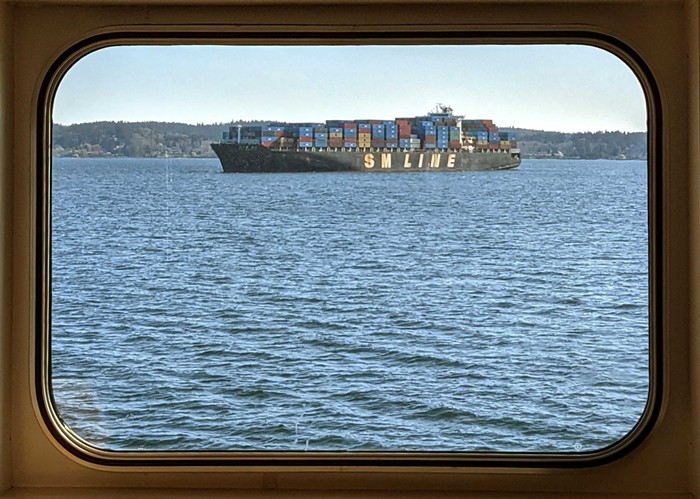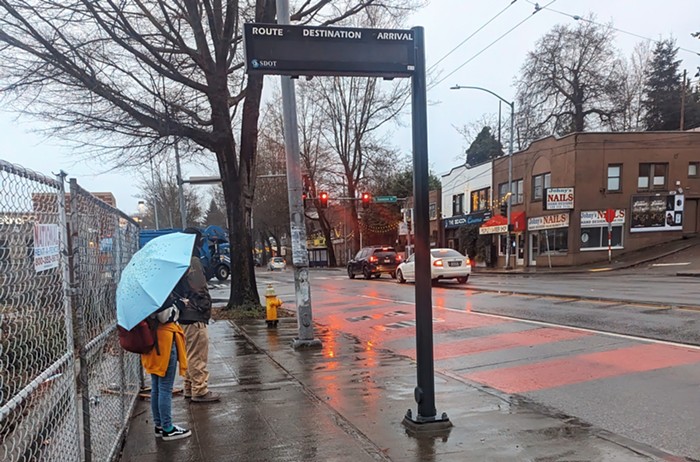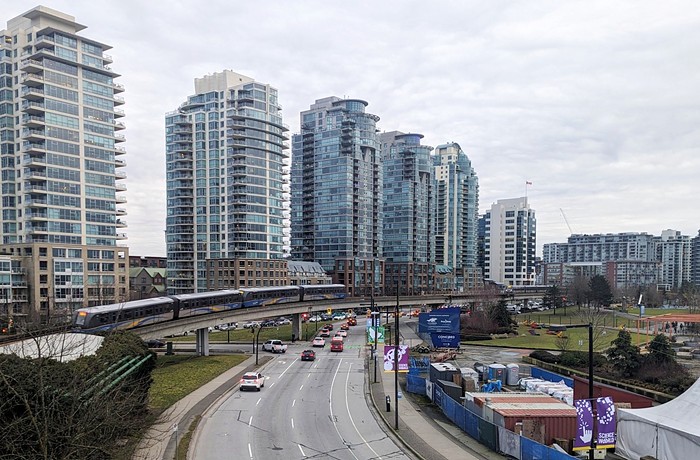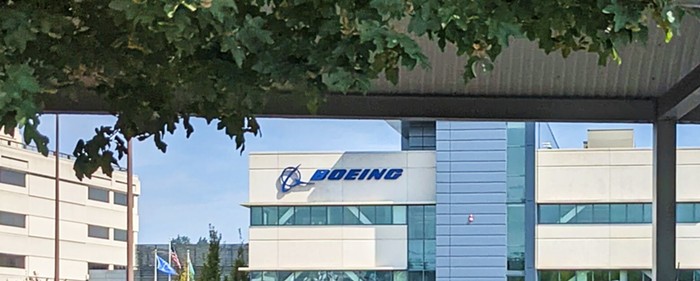
On Thursday, August 8, the Minneapolis City Council voted to ban new drive-through banks, restaurants, and drug stores. According to the blog New Food Economy, this makes Minneapolis the first major city in the US to impose such a ban. Drive-throughs, according to the council and activists of alternative modes of transportation, are bad for bikers, walkers, and drivers. They should go, and go for food.
What this attitude represents is a profound shift in American culture. It is the 21 century beginning its break from the 20th, the middle of which experienced the rapid development of an economic system that had has its nucleus the automobile. Vladimir Nabokov's 1955 novel Lolita is not just a work of fiction but a historical document of the birth of the only America we know and whose infrastructure is now crumbling: the glamourless motor hotels (motels), the lakes of parking, the endless highways.
Here is one of my favorite passages from the novel:
I have never seen such smooth amiable roads as those that now radiated before us, across the crazy quilt of forty-eight states. Voraciously we consumed those long highways, in rapt silence we glided over their glossy black dance floors.
Later in the novel:
While searching for night lodgings, I passed a drive-in. In a selenian glow, truly mystical in its contrast with the moonless and massive night, on a gigantic screen slanting away among dark drowsy fields, a thin phantom raised a gun, both he and his arm reduced to tremulous dishwater by the oblique angle of that receding world, — and the next moment a row of trees shut off the gesticulation.Lolita is not a happy novel, and its ending is depressing. But no other mid-century English-language writer described the world's first automobile civilization better than the Russian Nabokov. His imagination collapsed into one gorgeous movement its horrors and attractions. What we read in lurid page after page is the material exuberance of a white middle class pumped by mass-produced cars and long-term mortgages. But this American way of life, which reshaped the city and even the century, is now threatened by environmental and demographic changes. The banning of drive-throughs is a symptom of the first; the red caps of MAGA is a reaction to the second. Both are linked by a threat that's felt as existential.
Minneapolis also plans to "phase out gas stations" as a part of a massive green plan that hopes to "make the city environmentally sustainable" by 2040. That's only 20 years away. What kind of society is Minneapolis rushing toward? It is completely different from the economy that has defined our culture for the past 70 years. A recent visit to the Henry Ford Museum in Dearborn—a Michigan city that's west of Detroit and has a massive Muslim population—gave me a sense of this history and its depth. The museum contains installations of motels, with mid-century mass-produced modernist furniture; there's an installation of a McDonald's with a 50-style automobile (galactic tailfins and all) filling its tiny parking lot. (McDonald's, however, did not have a drive-through joint until the mid-70s—In-N-Out Burger got into this kind of business in 1948.) There's the long line of presidential cars. All of them black. Some of them bulletproof. One of them JFK was killed in (a 1961 Lincoln Continental).

This period invented the America that we are now familiar with. The slogan Make America Great Again does not refer to the US before World War II. What you will find from the 1940s down is a white middle class that's small, working-class whites in the city, unemployed whites in sprawling slums, and upper-class whites in the suburbs. There are no long-term home loans to anchor an ordinary family with one financial asset (property value), and there's the terror of a gold standard whose fluctuations can flush whole populations deep into poverty at any moment. Pre-war US is as strange a place. But so is the one Minneapolis is heading to. The task for progressive urban politics is the maintenance of the middle class, but with the complete reconstruction of its values and supports.



















